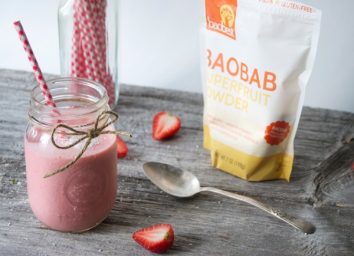Exactly How Fruit Juice is Making You Fat
It’s natural, it’s packed with vitamin C, and it comes from Florida—so what could be wrong with orange juice? For starters, many bottles are jam-packed with waist-widening amounts of sugar, which is bad news for both your beltline and oral health.
Juice has how much sugar?
Get this: An 11.5-ounce bottle of Simply Orange’s pulp-free orange juice packs in 33 grams of sugar—that’s the belly-busting amount you’ll find in just over three Krispy Kreme Glazed Doughnuts! If you wouldn’t dare to consume a stack of fried and icing-topped dough in one sitting then why would you subject yourself to sipping on a drink that’s blended with nearly just as much sugar?
What’s worse is that most of the sweetness in fruit juice comes from fructose; this simple sugar is found in fruit, easily absorbed and digested by the body, and has been linked to dangerous belly fat.
Why should you worry about fructose?
A Current Opinion in Lipidology study linked high consumption of fructose to increases in harmful abdominal fat as well as insulin resistance. A more recent review published in the journal Nutrients warned that the dangers of overconsumption of fructose include a significantly increased risk of developing metabolic syndrome.
So, should you stop eating fruit if it contains fructose?
Not at all! Fruit contains health-promoting micronutrients—such as free-radical-fighting antioxidants, minerals, vitamins, and phytochemicals—as well as two important satiating properties: fiber and water.
This complete package is what makes eating fruit so good for you. In fact, increasing your fruit consumption, regardless of the fruit’s sugar content, is generally tied to lower body weight and a lower risk of obesity-associated diseases, according to a comprehensive 2016 review published in the journal Nutrients.
The key difference between fruit and fruit juice:
Experts believe the association between fruit and weight loss is due to one key factor: fiber. When you eat whole fruits—as opposed to drinking fruit juice—you’re also getting plenty of fiber. This fiber helps to fill you up while at the same time slows your body’s digestion of the fruit’s sugar, and this is what keeps your blood sugar from spiking.
On the other hand, juice sugars are devoid of fiber, which is the reason why they’re metabolized quickly, lack the ability to make you feel full, and can contribute to weight gain.
But heed the age-old advice, “too much of anything isn’t a good thing.” Isabel Smith, MS, RD, CDN, founder of Isabel Smith Nutrition, and New York City-based dietitian and fitness expert, acknowledges that while there are many benefits of eating fruit, “we still want to be mindful of how much fruit we’re eating because it does contain sugar,” explains Smith. And the sugar in fruit can still have the same blood-sugar-spiking effect if eaten in excess and when it’s pulverized into a juice.
Drink This! Instead
If you’re looking to slash your risk of obesity and diabetes, trick your belly into shrinking itself by adding an orange slice to a glass of water for added flavor sans the extra sugar and calories. Or start by swapping your usual morning glass of OJ with a mug of metabolism-boosting green tea. Test panelists lost up to 14 pounds in just two weeks as part of our 17-Day Green Tea Diet!








